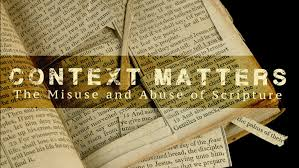Blass, Debrunner, and Funk
The Blass and Debrunner grammar, translated and revised by Robert Funk, generally endorses Colwell's study, but notes: "[Colwell] deals only with sentences in which the verb appears and only with nouns that are unambiguously definite" (
BDF, p. 143). The latter point will be developed in greater detail by Dixon (see below) with regard to the application of Colwell's Rule and John 1:1c. Blass and Debrunner have little to say about predicate nouns that lack the article, but in reference to Mark 7:15 remark: "the idea which runs through the whole discourse is that there really is something which produces this effect, and this given category is now referred to a particular subject" (IBID). Thus, it may be inferred that Blass and Debrunner view
anarthrous nouns in much the same was as Zerwick, primarily ascribing qualities or characteristics to the subject rather than membership in a class (the category itself is "referred" to the subject - the subject is not said to be placed
in the category).
Lane McGaughy
McGaughy's published
dissertation on the use of the Greek verb EINAI ("to be") has been widely recognized for its thoroughness. McGaughy examines Colwell's statistics and finds several of the "exceptions" to his rule that Colwell noted are, in fact, not exceptions at all. Thus several scholars have recognized McGaughy as supporting Colwell's conclusion that THEOS in John 1:1c is definite (e.g.,
Carson, p. 137) or has even given it greater weight (e.g.,
Grudem, p. 234, n. 12 ). McGaughy says that John 1:1 "should be translated 'And the Word was God' rather than 'And the Word was divine'" (
McGaughy, p. 77). He cites Zerwick approvingly: "A noun preceding the verb and lacking the article should not be regarded as 'qualitative' on the mere grounds of the absence of the article" (
IBID). Interestingly, McGaughy has not, to my knowledge, addressed Harner's article (which appeared one year after McGaughy's study), which distinguishes between a qualitative meaning and the weaker adjectival "divine" that McGaughy argues against.
Phillip B. Harner
The impact of Phillip B. Harner's
study of qualitative anarthrous predicate nouns on the interpretation of John 1:1 cannot be overemphasized. Harner noted that "Colwell was almost entirely concerned with the question whether anarthrous predicate nouns were definite or indefinite, and he did not discuss at any length the problem of their qualitative significance" (
Harner, p. 76). Again, Colwell, like most older grammarians, saw qualitative nouns as more or less the same as indefinite nouns.
Harner argues that qualitativeness should be considered a semantic force in its own right:
This study will suggest that anarthrous predicate nouns preceding the verb may function primarily to express the nature or character of the subject, and this qualitative significance may be more important that the question whether the predicate noun itself should be regarded as definite or indefinite (
IBID, p. 75).
Harner says that qualitativeness may coexist with either a definite or indefinite semantic force. Though not explicitly stated, a close reading also indicates that he believed qualitativeness may exist by itself. When considering Mark 12:35, Harner says, "the predicate noun could be interpreted as defininte, indefinite, or qualitative, depending on the particular meaning or emphasis which we understand the passage to have" (
IBID, p. 79).
Harner found that 80% of anarthrous pre-verbal PNs in Mark and John are qualitative and 20% are definite. None are exclusively indefinite, which supports Colwell's conclusion as well. Harner notes that some qualitative nouns, such as HAMARTÔLOS ("sinner") in John 8:31, though best translated with the indefinite article due to English idiom, should actually be considered qualitative:
Again the qualitative aspect of the predicate is most prominent; they [the Jews] think that Jesus has the nature or character of one who is "sinner." There is no basis for regarding the predicate as definite, although in this instance we would probably use the indefinite article in English translation (
IBID, p. 83).
Harner stresses that when considering whether a pre-verbal predicate noun is definite, indefinite, or qualitative, it is important to consider how the writer might have expressed his intentions using another, and possibly less ambiguous, syntax as well as what he actually wrote. Thus, with John 1:1c, Harner notes the following possibilities:
A. hO LOGOS ÊN hO THEOS
B. THEOS ÊN hO LOGOS
C. hO LOGOS THEOS ÊN
D. hO LOGOS ÊN THEOS
E. hO LOGOS ÊN THEIOS
Clause A, with an
arthrous predicate, would mean that
logos and
theos are equivalent and interchangeable. There would be no
ho theos which is not also
ho logos. But this equation of the two would contradict the preceding clause of 1:1, in which John writes that`o logoV hn proV ton qeon. This clause suggests relationship, and thus some form of "personal" differentiation, between the two (
IBID, p. 84-85).
So, Harner, in agreement with Robertson, Dana & Mantey, and most other scholars cited above, notes that if both THEOS and LOGOS were articular, the two terms would be convertible. Since John did not use this syntax, his intended meaning must be something else. Harner continues:
Clause D, with the verb preceding an anarthrous predicate, would probably mean that the logos was "a god" or a divine being of some kind, belonging to the general category of
theos but as a distinct being from
ho theos. Clause E would be an attenuated form of D. It would mean that the
logos was "divine," without specifying further in what way or to what extent it was divine. It could also imply that the
logos, being only
theios, was subordinate to
theos (
IBID).
Thus, Harner notes that had John wished to express the idea that the LOGOS was "a god," or a divine being distinct from hO THEOS, he had at least two unambiguous ways of doing so. Since he did not, we may conclude that John in all likelihood chose the syntax he did because he wished to express something else with regard to the LOGOS.
Clauses B and C, with an anarthrous predicate preceding the verb, are primarily qualitative in meaning. They indicate that the
logos has the nature of
theos. There is no basis for regarding the predicate
theos as definite. This would make B and C equivalent to A, and like A they would then contradict the preceding clause of 1:1 (
IBID).
Note here that Harner equates a definite semantic force in a pre-verbal PN without the article to an articular noun. He sees both forms as examples of a convertible proposition. This is the major point of contention between scholars who regard THEOS in 1:1c as definite as opposed to those who see it as qualitative. Scholars on both sides interpret this clause in more or less the same way, as Harner himself notes: "In many cases their [commentators'] interpretations agree with the explanation that is given above" (
IBID). Those who agree with Harner reject a definite force because they view it as semantically the same as a convertible proposition, which would present problems with regard to the previous clause (1:1b). Those who view THEOS as definite believe the absence of the article precludes the possibility of convertibility. Yet both generally agree that the meaning of 1:1c is as Harner himself translates it: "The Word had the same nature as God" (
IBID, p. 87).




